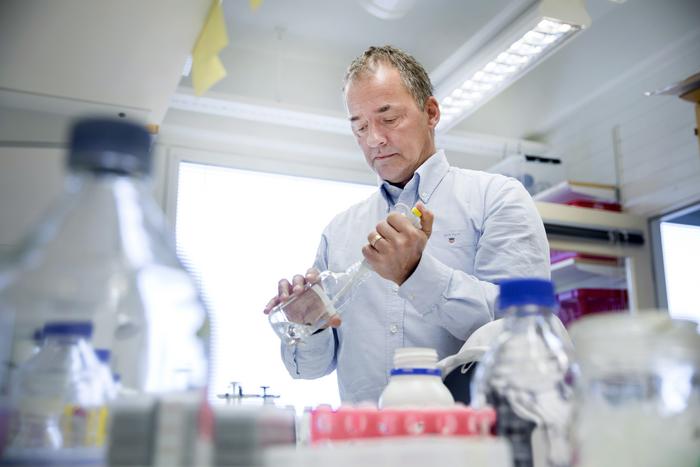Researchers at Umeå University, Sweden, have discovered that how a special protein complex called the Mediator moves along genes in DNA may have an impact on how cells divide. The discovery may be important for future research into the treatment of certain diseases.

Credit: Johan Gunséus
Researchers at Umeå University, Sweden, have discovered that how a special protein complex called the Mediator moves along genes in DNA may have an impact on how cells divide. The discovery may be important for future research into the treatment of certain diseases.
“We have gained in-depth knowledge of how cell division is controlled, which is important for understanding the causes of various diseases that are due to errors in cell division, such as various tumour diseases,” says Stefan Björklund, professor at the Department of Medical Biochemistry and Biophysics at Umeå University and lead author of the study.
In each cell there is a machinery called the ribosome. It uses DNA as a template to produce proteins, which are necessary for virtually all processes in the cell. First, however, the cells must make a copy of the instructions in the form of mRNA through a process called transcription.
The research team at Umeå University has discovered how the Mediator, a protein complex in the cell nucleus, can bind to DNA and interact with another protein complex, Lsm1-7, to regulate the production of proteins that make up the ribosomes. The study shows that when cells grow too densely, cell division slows down. When this happens, the mediator moves to the end of the genes where it interacts with Lsm1-7. This has the dual effect of both slowing down the reading of the genes and interfering with the maturation of mRNA. This, in turn, leads to a reduced production of ribosomal proteins and thus a slower cell division.
A possible direction of future research may be to study whether it is possible to control the position of the mediator, in order to inhibit rapid cell division, for example in tumours.
“We are still early in the research in the field, so more studies are needed before we can say that this is a viable path, but it is an exciting opportunity,” says Stefan Björklund.
The study has been conducted in yeast cells that serve as a good model when it comes to understanding basic mechanisms that work in a similar way in more complex systems such as animal and plant cells.
Journal
Nucleic Acids Research
Method of Research
Experimental study
Subject of Research
Cells
Article Title
Growth-regulated co-occupancy of Mediator and Lsm3 at intronic ribosomal protein genes
Article Publication Date
13-Apr-2024



